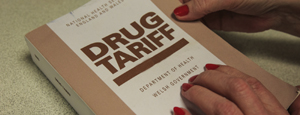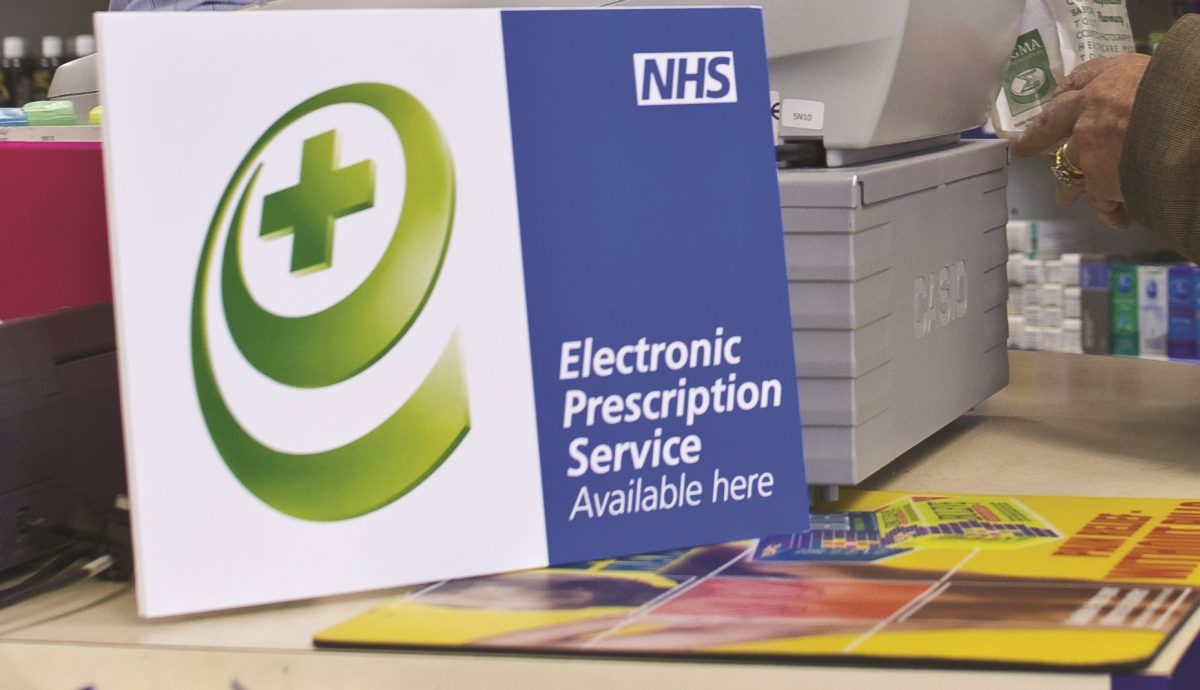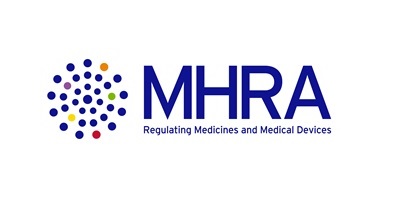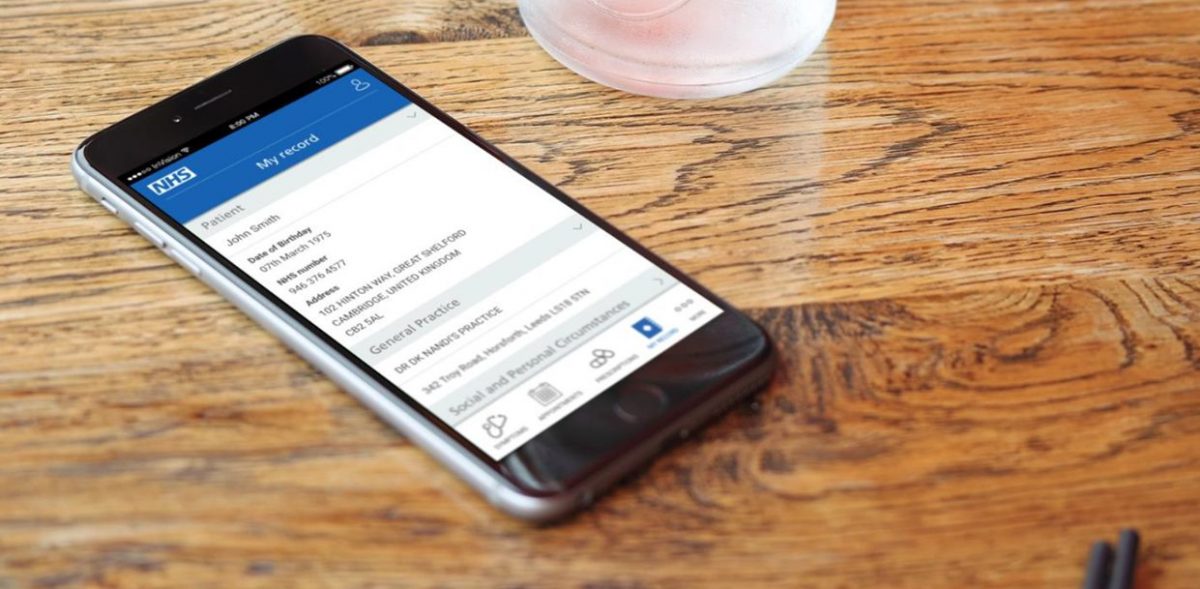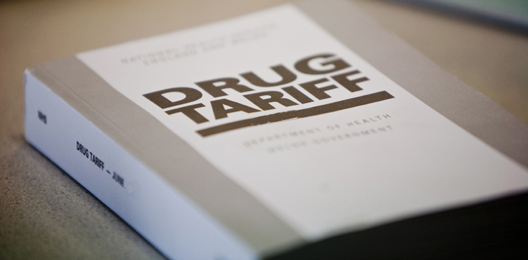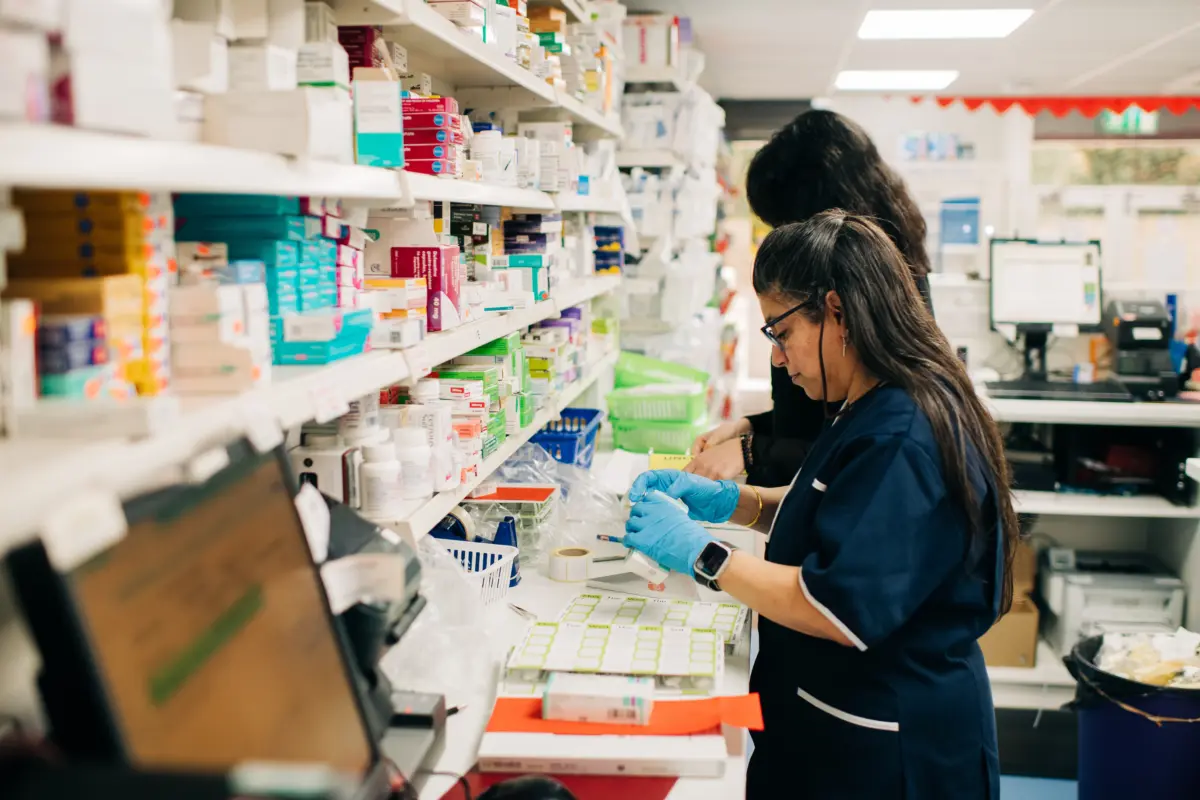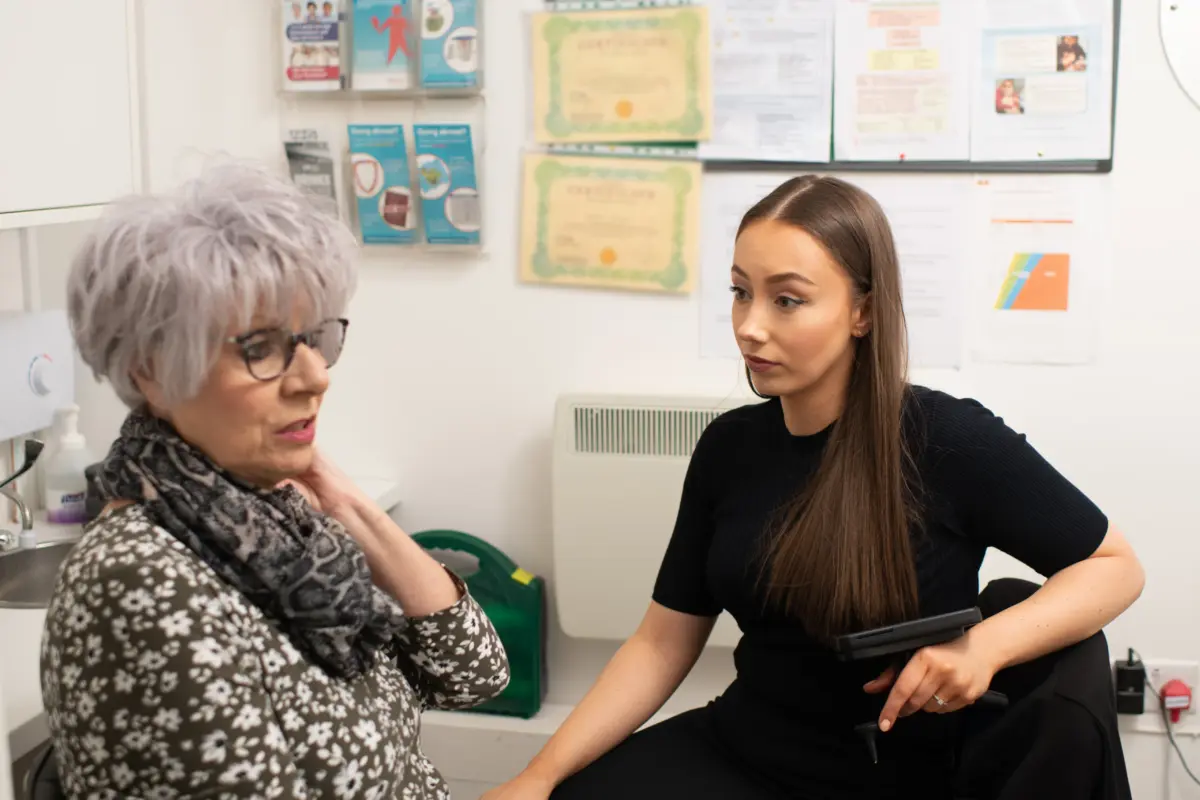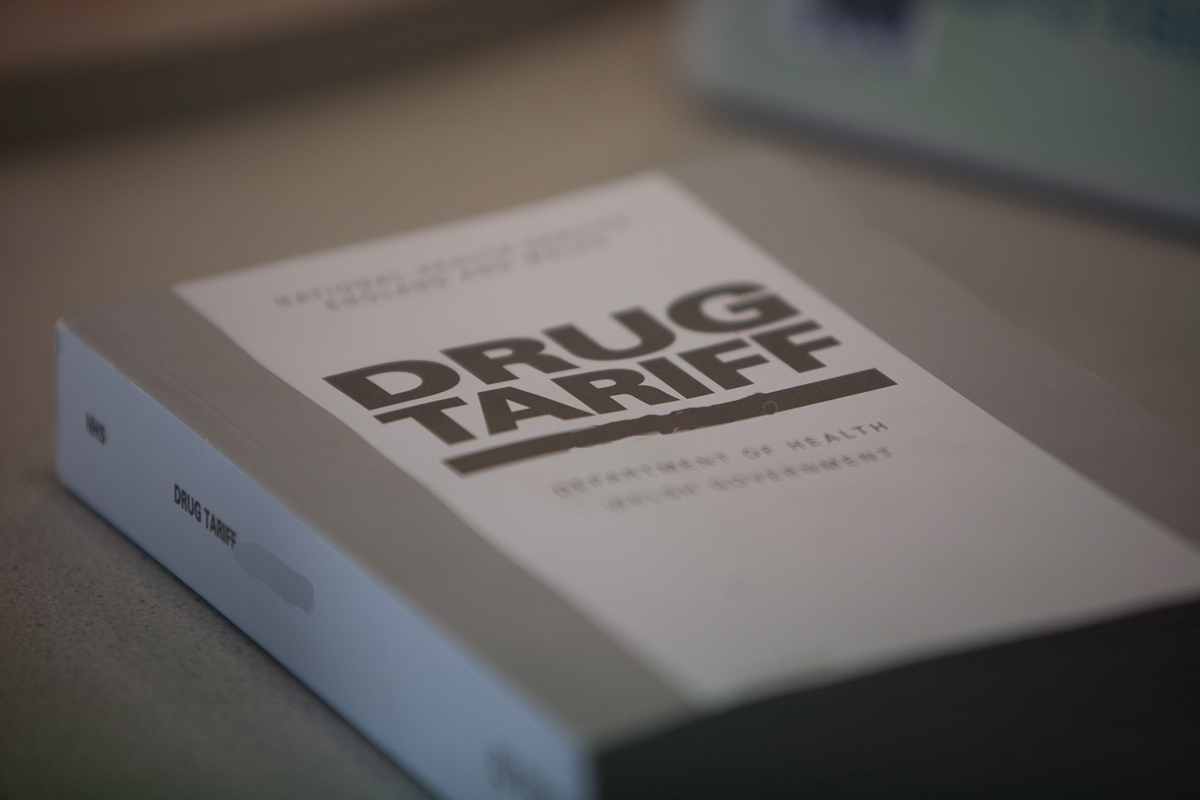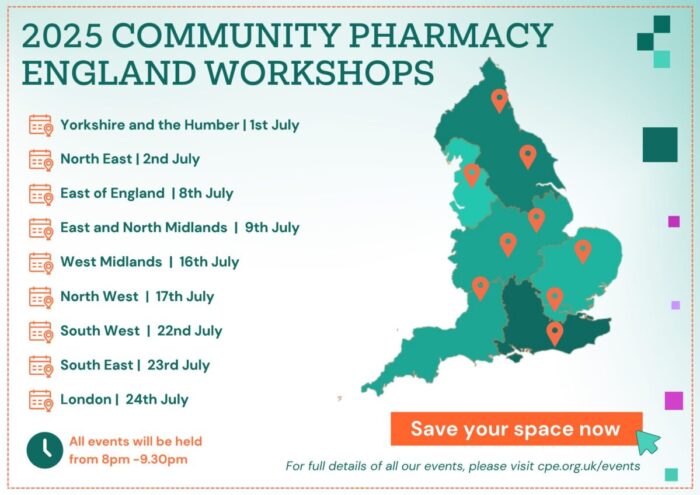Who can prescribe what?
Published on: 17th July 2013 | Updated on: 9th July 2024
Different types of prescribers hold different prescribing rights. It is important for pharmacy teams to be able to identify what each type of prescriber is entitled to prescribe to avoid disallowed prescriptions.
Click on a drop-down option below for further information of the prescribing rights for the different types of prescribers that you may see NHS prescriptions from in a community pharmacy:
| Nature of prescribed item | Eligible to prescribe | Detailed information |
| Licensed drugs (POMs, Ps, GSLs), foods, toiletries and/or cosmetics | See Part XVIIB(ii) of the Drug Tariff. Like other NHS prescribers, they may not prescribe any medicine which appears in Part XVIIIA (drugs, medicines and other substances that may not be ordered under the NHS) of the Drug Tariff . | |
| Off label and off licence | They can prescribe ‘off-licence’ or ‘off-label’; only when this is accepted clinical practice and where they accept clinical/legal responsibility for their prescribing decision. | |
| Unlicensed medicines | MHRA Guidance Note 14 states ‘Responsibility for deciding whether an individual patient has “special needs” which a licensed product cannot meet should be a matter for the doctor, dentist, nurse independent prescriber, pharmacist independent prescriber or supplementary prescriber responsible for the patient’s care.’. | |
| Controlled Drugs (CDs) | CD prescriptions are subject to writing requirements which can be found on Controlled Drug prescription forms and validity. | |
| Appliances or chemical reagents listed in Part IX | They can prescribe all appliances listed in Part IX of the Drug Tariff. | |
| Selected List Scheme (SLS)* | They are permitted to prescribe items in the “Selected List Scheme”. However, only in the specified circumstances, for the specified patient groups listed in Part XVIIIB of the Drug Tariff and where this is within their scope of professional practice. | |
| Borderline Substances (ACBS) | They are permitted to prescribe ACBS items in part XV of the Drug Tariff ‘In certain conditions some foods and toilet preparations have characteristics of drugs and the Advisory Committee on Borderline Substances advises as to the circumstances in which such substances may be regarded as drugs. ‘ | |
| Additional information |
Click here for the General Medical Council searchable register. They can write Repeat Dispensing prescriptions (RA/RD) and Emergency supply requests.** |
*Pharmacy teams should note that regulations have been introduced to restrict the prescribing and supply of puberty suppressing hormones / gonadotrophin releasing hormone (GnRH) analogues to children and young people under 18 for the purposes of gender dysphoria / gender incongruence. From 26 July 2024 onwards, all GnRH NHS prescriptions are required to have the SLS endorsement.
** A request, in an emergency, for the supply of a prescription only medicine which is not a Schedule 1, 2 or 3 Controlled Drug, if the prescriber would otherwise be entitled to prescribe that drug. The prescriber must give an undertaking to furnish a prescription within 72 hours. (See para. 6 (2), Schedule 4 of the National Health Service (Pharmaceutical and Local Pharmaceutical Services) Regulations 2013). All requests for emergency supply must be considered on a case by case basis, using your professional judgement to decide which course of action is in the best interest of the patient.
| Nature of prescribed item | Eligible to prescribe | Detailed information |
| Licensed drugs (POMs, Ps, GSLs), foods, toiletries and/or cosmetics |
They must work within their own level of professional competence and expertise. See Part XVIIB(ii) of the Drug Tariff. Like other NHS prescribers, they may not prescribe any medicine which appears in Part XVIIIA (drugs, medicines and other substances that may not be ordered under the NHS) of the Drug Tariff. |
|
| Off label and off licence | |
They can prescribe ‘off-licence’ or ‘off-label’; only when this is accepted clinical practice and where they accept clinical/legal responsibility for their prescribing decision. |
| Unlicensed medicines | ||
| Controlled Drugs (CDs) | They are permitted to prescribe any Schedule 2, 3, 4 or 5 Controlled Drug (except Diamorphine, Dipipanone or Cocaine for the treatment of addiction). | |
| Appliances or chemical reagents listed in Part IX | They can prescribe all appliances listed in Part IX of the Drug Tariff. | |
| Selected List Scheme (SLS)* | They are permitted to prescribe items in the “Selected List Scheme”. However, only in the specified circumstances, for the specified patient groups listed in the Drug Tariff and where this is within their scope of professional practice. | |
| Borderline Substances (ACBS) | |
They are permitted to prescribe ACBS items and the Drug Tariff indicates that they should normally restrict prescribing of any borderline substances to items on the ACBS list. |
| Additional information |
Click here for the GPhC’s searchable register. Can write Repeat Dispensing prescriptions (RA/RD) and Emergency supply requests.** |
*Pharmacy teams should note that regulations have been introduced to restrict the prescribing and supply of puberty suppressing hormones / gonadotrophin releasing hormone (GnRH) analogues to children and young people under 18 for the purposes of gender dysphoria / gender incongruence. From 26 July 2024 onwards, all GnRH NHS prescriptions are required to have the SLS endorsement.
** A request, in an emergency, for the supply of a prescription only medicine which is not a Schedule 1, 2 or 3 Controlled Drug, if the prescriber would otherwise be entitled to prescribe that drug. The prescriber must give an undertaking to furnish a prescription within 72 hours. (See para. 6 (2), Schedule 4 of the National Health Service (Pharmaceutical and Local Pharmaceutical Services) Regulations 2013). All requests for emergency supply must be considered on a case by case basis, using your professional judgement to decide which course of action is in the best interest of the patient.
| Nature of prescribed item | Eligible to prescribe | Detailed information |
| Licensed drugs (POMs, Ps, GSLs), foods, toiletries and/or cosmetics |
They can prescribe any licensed medicine for any condition within their competence within the overarching framework of human movement, performance and function. See Part XVIIB(ii) of the Drug Tariff. Like other NHS prescribers, they may not prescribe any medicine which appears in Part XVIIIA (drugs, medicines and other substances that may not be ordered under the NHS) of the Drug Tariff . |
|
| Off label and off licence | They can prescribe ‘off-licence’ or ‘off-label’; only when this is accepted clinical practice and where they accept clinical/legal responsibility for their prescribing decision. | |
| Unlicensed medicines | ||
| Controlled Drugs (CDs) | They are able to prescribe for the treatment of organic disease or injury provided that the Controlled Drug is prescribed to be administered by the specified method:
|
|
| Appliances or chemical reagents listed in Part IX | They can only prescribe appliances/ dressings for the treatment of conditions relevant to their respective areas of professional practice. | |
| Selected List Scheme (SLS)* | They are permitted to prescribe items in the “Selected List Scheme”. However, only in the specified circumstances, for the specified patient groups listed in Part XVIIIB of the Drug Tariff and where this is within their scope of professional practice. | |
| Borderline Substances (ACBS) | They are permitted to prescribe ACBS items; however, the Drug Tariff indicates that they should not need to prescribe any items on the ACBS list. | |
| Additional information |
Click here for the Health and Care Professions Council’s searchable register. On 1 June 2015 the Misuse of Drugs Regulations 2001 were amended to allow physiotherapist independent prescribers to prescribe and administer a specified list of Controlled Drugs. |
*Pharmacy teams should note that regulations have been introduced to restrict the prescribing and supply of puberty suppressing hormones / gonadotrophin releasing hormone (GnRH) analogues to children and young people under 18 for the purposes of gender dysphoria / gender incongruence. From 26 July 2024 onwards, all GnRH NHS prescriptions are required to have the SLS endorsement.
| Nature of prescribed item | Eligible to prescribe | Detailed information |
| Licensed drugs (POMs, Ps, GSLs), foods, toiletries and/or cosmetics | They can prescribe any licensed medicine for any condition within their competence and relevant to the treatment of disorders affecting the foot, ankle and associated structures. See Part XVIIB(ii) of the Drug Tariff. Like other NHS prescribers, they may not prescribe any medicine which appears in Part XVIIIA (drugs, medicines and other substances that may not be ordered under the NHS) of the Drug Tariff . |
|
| Off label and off licence | They can prescribe ‘off-licence’ or ‘off-label’; only when this is accepted clinical practice and where they accept clinical/legal responsibility for their prescribing decision. | |
| Unlicensed medicines | ||
| Controlled Drugs (CDs) | They are able to prescribe for the treatment of organic disease or injury provided that the Controlled Drug is prescribed to be administered by the specified method:
by oral administration. |
|
| Appliances or chemical reagents listed in Part IX | They are permitted to prescribe appliances/ dressings for the treatment of conditions relevant to their respective areas of professional practice. | |
| Selected List Scheme (SLS)* | They are permitted to prescribe items in the “Selected List Scheme”. However, only in the specified circumstances, for the specified patient groups listed in Part XVIIIB of the Drug Tariff and where this is within their scope of professional practice. | |
| Borderline Substances (ACBS) | They are permitted to prescribe ACBS items; However, they should not need to prescribe any items on the ACBS list. | |
| Additional information |
Click here for the Health and Care Professions Council’s searchable register. On 1 June 2015 the Misuse of Drugs Regulations 2001 were amended to allow chiropodist/podiatrist independent prescribers to prescribe and administer a specified list of Controlled Drugs.** |
*Pharmacy teams should note that regulations have been introduced to restrict the prescribing and supply of puberty suppressing hormones / gonadotrophin releasing hormone (GnRH) analogues to children and young people under 18 for the purposes of gender dysphoria / gender incongruence. From 26 July 2024 onwards, all GnRH NHS prescriptions are required to have the SLS endorsement.
** A request, in an emergency, for the supply of a prescription only medicine which is not a Schedule 1, 2 or 3 Controlled Drug, if the prescriber would otherwise be entitled to prescribe that drug. The prescriber must give an undertaking to furnish a prescription within 72 hours. (See para. 6 (2), Schedule 4 of the National Health Service (Pharmaceutical and Local Pharmaceutical Services) Regulations 2013). All requests for emergency supply must be considered on a case by case basis, using your professional judgement to decide which course of action is in the best interest of the patient.
| Nature of prescribed item | Eligible to prescribe | Detailed information |
| Licensed drugs (POMs, Ps, GSLs), foods, toiletries and/or cosmetics | They can only prescribe products included in the Dental Prescribing Formulary (Part XVIIA of the Drug Tariff) on an FP10D prescription. | |
| Off label and off licence | |
|
| Unlicensed medicines | |
|
| Controlled Drugs (CDs) | |
They can only prescribe Controlled Drugs included in the Dental Prescribing Formulary (Part XVIIA of the Drug Tariff) on an FP10D prescription. |
| Appliances or chemical reagents listed in Part IX | |
They can only prescribe if the appliance is listed generically in the Dental Prescribing Formulary. |
| Selected List Scheme (SLS) | |
|
| Borderline Substances (ACBS) | |
They can only prescribe products included in the Dental Prescribing Formulary (Part XVIIA of the Drug Tariff) on an FP10D prescription. |
| Additional information |
Click here for the General Dental Council searchable register. See Part XVIIA of the Drug Tariff. Even though they are encouraged not to do so, dentists can prescribe by brands as long as they are not listed in Part XVIIIA (drugs, medicines and other substances that may not be ordered under the NHS) of the Drug Tariff . Dentists working in secondary care issuing FP10 prescriptions are not restricted to the Dental Prescribing Formulary. They are able to prescribe any drug or medical device that would normally be allowed on an FP10 (see doctors above). They can write Emergency supply requests. |
Click here for Frequently Asked Questions (FAQs) about dental prescriptions.
| Nature of prescribed item | Eligible to prescribe | Detailed information |
| Licensed drugs (POMs, Ps, GSLs), foods, toiletries and/or cosmetics | See Part XVIIB(ii) of the Drug Tariff. Nurse Independent Prescribers are able to prescribe any medicine for any medical condition within their competence they may not prescribe any medicine which appears in Part XVIIIA (drugs, medicines and other substances that may not be ordered under the NHS) of the Drug Tariff. | |
| Off label and off licence | They must work within their own level of professional competence and expertise. | |
| Unlicensed medicines | They can prescribe ‘off-licence’ or ‘off-label’; only when this is accepted clinical practice and where they accept clinical/legal responsibility for their prescribing decision. | |
| Controlled Drugs (CDs) | They are permitted to prescribe any Schedule 2, 3, 4 or 5 Controlled Drug (except Diamorphine, Dipipanone or Cocaine for the treatment of addiction). | |
| Appliances or chemical reagents listed in Part IX | They can prescribe all appliances listed in Part IX of the Drug Tariff. | |
| Selected List Scheme (SLS)* | They are permitted to prescribe items in the “Selected List Scheme”. However, only in the specified circumstances, for the specified patient groups listed in Part XVIIIB of the Drug Tariff and where this is within their scope of professional practice. | |
| Borderline Substances (ACBS) | They are permitted to prescribe ACBS items and should normally restrict prescribing of any borderline substances to items on the ACBS list. | |
| Additional information |
Click here for the NMC searchable register. They can write Repeat Dispensing prescriptions (RA/RD) and Emergency supply requests. ** |
*Pharmacy teams should note that regulations have been introduced to restrict the prescribing and supply of puberty suppressing hormones / gonadotrophin releasing hormone (GnRH) analogues to children and young people under 18 for the purposes of gender dysphoria / gender incongruence. From 26 July 2024 onwards, all GnRH NHS prescriptions are required to have the SLS endorsement.
** A request, in an emergency, for the supply of a prescription only medicine which is not a Schedule 1, 2 or 3 Controlled Drug, if the prescriber would otherwise be entitled to prescribe that drug. The prescriber must give an undertaking to furnish a prescription within 72 hours. (See para. 6 (2), Schedule 4 of the National Health Service (Pharmaceutical and Local Pharmaceutical Services) Regulations 2013). All requests for emergency supply must be considered on a case by case basis, using your professional judgement to decide which course of action is in the best interest of the patient.
See our Frequently Asked Questions (FAQs) below regarding nurse prescriptions.
| Nature of prescribed item | Eligible to prescribe | Detailed information |
| Licensed drugs (POMs, Ps, GSLs), foods, toiletries and/or cosmetics | Therapeutic radiographer independent prescribers may prescribe any licensed medicine, within national and local guidelines, for any condition, the practitioner’s area of expertise and competence, and the overarching framework of treatment of cancer. | |
| Off label and off licence | They may prescribe medicines for off-label use, if they:
Prescribers must make a clear, accurate and legible record of reasons for using a medicine in an off-label manner. |
|
| Unlicensed medicines | ||
| Controlled Drugs (CDs) | A therapeutic radiographer independent prescriber may prescribe any of the following controlled drugs for the treatment of organic disease or injury provided that the controlled drug is prescribed to be administered by the specified method:
|
|
| Appliances or chemical reagents listed in Part IX | ||
| Selected List Scheme (SLS) |
|
|
| Borderline Substances (ACBS) | ||
| Additional information | Click here for the Health and Care Professions Council’s searchable register. |
| Nature of prescribed item | Eligible to prescribe | Detailed information |
| Licensed drugs (POMs, Ps, GSLs), foods, toiletries and/or cosmetics |
|
They can prescribe any licensed medicine for ocular conditions affecting the eye and surrounding tissue. See Part XVIIB(ii) of the Drug Tariff. Like other NHS prescribers, they may not prescribe any medicine which appears in Part XVIIIA (drugs, medicines and other substances that may not be ordered under the NHS) of the Drug Tariff. |
| Off label and off licence |
They can prescribe ‘off-licence’ or ‘off-label’; only when this is accepted clinical practice and where they accept clinical/legal responsibility for their prescribing decision; although, the General Optical Council discourages this. Guidance is available from the College of Optometrists Clinical Management Guidelines |
|
| Unlicensed medicines | ||
| Controlled Drugs (CDs) | ||
| Appliances or chemical reagents listed in Part IX | They can only prescribe if the appliance is listed in Part IX of the Drug Tariff and is for ocular conditions affecting the eye and surrounding tissue. | |
| Selected List Scheme (SLS)* | They are permitted to prescribe items in the “Selected List Scheme”. However, only in the specified circumstances, for the specified patient groups listed in Part XVIIIB of the Drug Tariff and where this is within their scope of professional practice. | |
| Borderline Substances (ACBS) | They are permitted to prescribe ACBS items; However, the Drug Tariff indicates that they should not need to prescribe any items on the ACBS list. | |
| Additional information |
Click here for the General Optical Council searchable register. They can write Repeat Dispensing prescriptions (RA/RD) and Emergency supply requests. ** |
*Pharmacy teams should note that regulations have been introduced to restrict the prescribing and supply of puberty suppressing hormones / gonadotrophin releasing hormone (GnRH) analogues to children and young people under 18 for the purposes of gender dysphoria / gender incongruence. From 26 July 2024 onwards, all GnRH NHS prescriptions are required to have the SLS endorsement.
** A request, in an emergency, for the supply of a prescription only medicine which is not a Schedule 1, 2 or 3 Controlled Drug, if the prescriber would otherwise be entitled to prescribe that drug. The prescriber must give an undertaking to furnish a prescription within 72 hours. (See para. 6 (2), Schedule 4 of the National Health Service (Pharmaceutical and Local Pharmaceutical Services) Regulations 2013). All requests for emergency supply must be considered on a case by case basis, using your professional judgement to decide which course of action is in the best interest of the patient.
| Nature of prescribed item | Eligible to prescribe | Detailed information |
| Licensed drugs (POMs, Ps, GSLs), foods, toiletries and/or cosmetics |
|
They can prescribe any licensed medicine for any condition within their competence. See Part XVIIB(ii) of the Drug Tariff. Like other NHS prescribers, they may not prescribe any medicine which appears in Part XVIIIA (drugs, medicines and other substances that may not be ordered under the NHS) of the Drug Tariff. |
| Off label and off licence | They can prescribe ‘off-licence’ or ‘off-label’; only when this is accepted clinical practice and where they accept clinical/legal responsibility for their prescribing decision. | |
| Unlicensed medicines | ||
| Controlled Drugs (CDs) | A paramedic independent prescriber may prescribe any of the following controlled drugs for the treatment of organic disease or injury provided the controlled drug is prescribed to be administered by the specified method—
|
|
| Appliances or chemical reagents listed in Part IX | They can prescribe all appliances listed in Part IX of the Drug Tariff. | |
| Selected List Scheme (SLS)* | They are permitted to prescribe items in the “Selected List Scheme”. However, only in the specified circumstances, for the specified patient groups listed in Part XVIIIB of the Drug Tariff and where this is within their scope of professional practice. | |
| Borderline Substances (ACBS) | They are permitted to prescribe ACBS items; However, the Drug Tariff indicates that they should not need to prescribe any items on the ACBS list. | |
| Additional information | Click here for the Health and Care Professions Council’s searchable register. |
*Pharmacy teams should note that regulations have been introduced to restrict the prescribing and supply of puberty suppressing hormones / gonadotrophin releasing hormone (GnRH) analogues to children and young people under 18 for the purposes of gender dysphoria / gender incongruence. From 26 July 2024 onwards, all GnRH NHS prescriptions are required to have the SLS endorsement.
| Nature of prescribed item | Eligible to prescribe | Detailed information |
| Licensed drugs (POMs, Ps, GSLs), foods, toiletries and/or cosmetics | They can only prescribe products included in the Nurse Prescribers’ Formulary for Community Practitioners (Part XVIIB(i) of the Drug Tariff). | |
|
Off label and off licence
|
* The only exception is nystatin which may be prescribed for neonates. | |
| Unlicensed medicines | ||
| Controlled Drugs (CDs) | ||
| Appliances or chemical reagents listed in Part IX | They can prescribe all appliances listed in Part IX of the Drug Tariff as they are included in the Nurse Prescribers’ Formulary for Community Practitioners. | |
| Selected List Scheme (SLS) | ||
| Borderline Substances (ACBS) | ||
| Additional information |
Click here for the NMC searchable register. See Part XVIIB(i) of the Drug Tariff. The Nurse Prescribers’ Formulary for Community Practitioners is annotated with a number of restrictions linked to particular products, for example, Paracetamol Tablets BP can only be prescribed in quantities up to 100. Even though they are encouraged not to do so, community nurses can prescribe by brands as long as they are not listed in Part XVIIIA (drugs, medicines and other substances that may not be ordered under the NHS) of the Drug Tariff. They can write Repeat Dispensing prescriptions (RA/RD) and Emergency supply requests. ** |
** A request, in an emergency, for the supply of a prescription only medicine which is not a Schedule 1, 2 or 3 Controlled Drug, if the prescriber would otherwise be entitled to prescribe that drug. The prescriber must give an undertaking to furnish a prescription within 72 hours. (See para. 6 (2), Schedule 4 of the National Health Service (Pharmaceutical and Local Pharmaceutical Services) Regulations 2013). All requests for emergency supply must be considered on a case by case basis, using your professional judgement to decide which course of action is in the best interest of the patient.
See our Frequently Asked Questions (FAQs) below regarding nurse prescriptions.
| Nature of prescribed item | Eligible to prescribe | Detailed information |
| Licensed drugs (POMs, Ps, GSLs), foods, toiletries and/or cosmetics |
They can prescribe any medicine (except products listed in Part XVIIIA of the Drug Tariff) as agreed by the patient and the doctor as part of a patient’s clinical management plan. See Part XVIIB(ii) of the Drug Tariff. Like other NHS prescribers, they may not prescribe any medicine which appears in Part XVIIIA (drugs, medicines and other substances that may not be ordered under the NHS) of the Drug Tariff. |
|
| Off label and off licence | Providing it is in accordance with the patient’s clinical management plan. | |
| Unlicensed medicines | Providing it is in accordance with the patient’s clinical management plan. | |
| Controlled Drugs (CDs) | Supplementary prescribers can also prescribe any Schedule 2, 3, 4 or 5 Controlled Drugs (except diamorphine, cocaine and Dipipanone for the treatment of addiction), providing it is in accordance with the patient’s clinical management plan. | |
| Appliances or chemical reagents listed in Part IX | They can prescribe any appliance listed in Part IX of the Drug Tariff, providing it is in accordance with the patient’s clinical management plan. | |
| Selected List Scheme (SLS)* | Providing it is in accordance with the patient’s clinical management plan. | |
| Borderline Substances (ACBS) | Providing it is in accordance with the patient’s clinical management plan. | |
| Additional information |
Click here for the Health and Care Professions Council’s searchable register. Supplementary prescribers could be: dietician, midwife, nurse, optometrist, paramedic, pharmacist, physiotherapist, podiatrist/chiropodist, radiographer (diagnostic/therapeutic). They can write Repeat Dispensing prescriptions (RA/RD) and Emergency supply requests, providing it is in accordance with the patient’s clinical management.** |
*Pharmacy teams should note that regulations have been introduced to restrict the prescribing and supply of puberty suppressing hormones / gonadotrophin releasing hormone (GnRH) analogues to children and young people under 18 for the purposes of gender dysphoria / gender incongruence. From 26 July 2024 onwards, all GnRH NHS prescriptions are required to have the SLS endorsement.
** A request, in an emergency, for the supply of a prescription only medicine which is not a Schedule 1, 2 or 3 Controlled Drug, if the prescriber would otherwise be entitled to prescribe that drug. The prescriber must give an undertaking to furnish a prescription within 72 hours. (See para. 6 (2), Schedule 4 of the National Health Service (Pharmaceutical and Local Pharmaceutical Services) Regulations 2013). All requests for emergency supply must be considered on a case by case basis, using your professional judgement to decide which course of action is in the best interest of the patient.
FAQs
Q. I have received a prescription from a non-medical prescriber (paramedic), however I can’t find the prescriber’s code in the register of non-medical prescriber, do I need to validate the code?
No. Pharmacy staff are not expected to validate prescriber codes, they are only expected to ensure that the code is present. The Pricing Authority validates these codes; prescriptions with incorrect codes will still be paid and will not be returned to the pharmacy.
Pharmacy teams wishing to validate a prescriber code can search professional registers such as the Health & Care Professions Council (HCPC). You can search the HCPC register using either the prescribers surname or registration number.
Important information relating to Non-Medical Prescriber codes in EPS
Please note that EPS has a set format for non-medical prescriber codes (Podiatrist, Physiotherapist, Radiographer, Dietician and Paramedic prescribers) to contain 8 characters, however, some professional codes for non-medical prescribers may only be 7 characters longs. Where a non-medical prescriber has a code that is 7 characters long systems are set up to pad out the code with an additional ‘0’ to ensure the code is 8 characters long. This can mean that where a code is padded out and you search on the register it will not return a result. Where a pharmacy team enters a code that returns no result in the search it is advised that you remove the leading ‘0’ from the code and renter the code.
Example:
| True 7 character code | Padded 8 character code version |
| PA04606 | PA004606 |
In the example above pharmacy teams would need to remove the additional ‘0’ (highlighted in red for emphasis) before rechecking the HCPC register.
Community Pharmacy England has pressed for the registers and systems to use a common standard (eight digits) and to reduce associated and unneeded pharmacy burden.
Q. Can I dispense Chlorhexidine gluconate 0.2% mouthwash alcohol free if ordered on a dental prescription (FP10D)?
Yes, the text of the BP monograph for Chlorhexidine gluconate mouthwash 0.2% encompasses all presentations for this product and therefore a dental prescription for an alcohol-free version is allowed.
Pharmacy contractors should ensure that if a dental prescription is written generically, it reads as “Chlorhexidine gluconate 0.2% mouthwash” and not oromucosal solution. This is because Chlorhexidine gluconate 0.2% oromucosal solution alcohol free sugar free has been removed from the Dental Formulary (Part XVIIA of the Drug Tariff) and therefore dental prescriptions written as oromucosal solution will no longer be passed for payment.
Q. I have received an FP10D prescription for Colgate Duraphat Toothpaste, is this allowed?
Yes. Dentists can prescribe products by their generic name or the proprietary equivalent (providing that the equivalent is not listed in Part XVIIIA (drugs, medicines and other substances that may not be ordered under the NHS)of the Drug Tariff ).
Duraphat contains Sodium Fluoride 0.619%. Sodium Fluoride Toothpaste 0.619% DPF is listed in Part XVIIA of the Drug Tariff (the Dental Prescribing Formulary) therefore this prescription would therefore be passed for payment by the Pricing Authority.
Q. The Pricing Authority has notified me via MYS of an FP10D Prescription for Amoxicillin tablets marked disallowed. Why was this prescription not passed for payment?
Only items listed in the Dental Prescribing Formulary (Part XVIIA of the Drug Tariff) can be prescribed on an FP10D prescription. As Amoxicillin tablets are not listed in Part XVIIA of the Drug Tariff, a prescription for this item would be disallowed. This still applies when the prescription has been endorsed with an item listed in the Dental Formulary, such as Amoxicillin capsules. If a pharmacy receives a dental prescription for Amoxicillin tablets, the prescription should be returned to the dentist for amendment before dispensing.
Q. The Pricing Authority has notified me via MYS of an FP10D Prescription for Ibuprofen oral suspension marked disallowed. Why was this prescription not passed for payment?
Only items listed in the Dental Prescribing Formulary (Part XVIIA of the Drug Tariff) can be prescribed on an FP10D prescription. There is both a sugar-containing and sugar-free formulation of this product available. However, only the sugar-free formulation is listed in the Dental Prescribing Formulary; therefore, only Ibuprofen oral suspension BP sugar-free can be prescribed on dental prescriptions. If a pharmacy receives a dental prescription for Ibuprofen oral suspension BP, the prescription should be returned to the dentist for “SF” to be added.
Q. I have received an FP10 prescription for Co-Dydramol 10/500 tablets. The prescription has been signed by a dentist working in a hospital, can this be dispensed?
Yes. Hospital dentists issuing FP10 prescriptions are not restricted to the Dental Prescribing Formulary. They are able to prescribe any drug or medical device that would normally be allowed on an FP10.
Q. I have received a lilac FP10P prescription for Sudocrem, is this allowed?
It depends on the type of nurse prescriber. A community practitioner nurse prescriber cannot prescribe Sudocrem as it is not listed in their Formulary (Part XVIIB(i) of the Drug Tariff).
However, a nurse who is a nurse independent prescriber would be allowed to prescribe Sudocrem as they can prescribe any licensed medicine for any medical condition within their level of experience and competence. This type of prescriber would have the words “nurse independent/ supplementary prescriber” printed onto the prescription forms they use.
Q. I have received a lilac FP10P prescription asking for 150 Paracetamol tablets, is this allowed?
It depends on the type of nurse prescriber. The Drug Tariff only permits a community practitioner nurse prescriber to prescribe Paracetamol in quantities up to 100 (see Part XVIIB(i) of the Drug Tariff) so they cannot prescribe this amount.
However, nurse independent prescribers are not limited in the quantity of Paracetamol that they can prescribe. This type of prescriber would have the words “nurse independent/ supplementary prescriber” printed onto the prescription forms they use.
Q. I have received a lilac FP10P prescription for Phenobarbitone annotated “Nurse Independent/ Supplementary Prescriber”, is this allowed?
Yes. Phenobarbitone is a Schedule 3 Controlled Drug. Nurse independent prescribers are able to prescribed any Schedule 2, 3, 4 or 5 Controlled Drug (except diamorphine, dipipanone or cocaine for the treatment of addiction), so whether the nurse is an independent or supplementary prescriber does not matter as both are able to prescribe this drug.
Related resources
Is this prescription form valid?
Controlled Drug prescription forms and validity
How to identify prescriber codes
Prescription form (NHSBSA website)
For more information on this topic please email comms.team@cpe.org.uk

